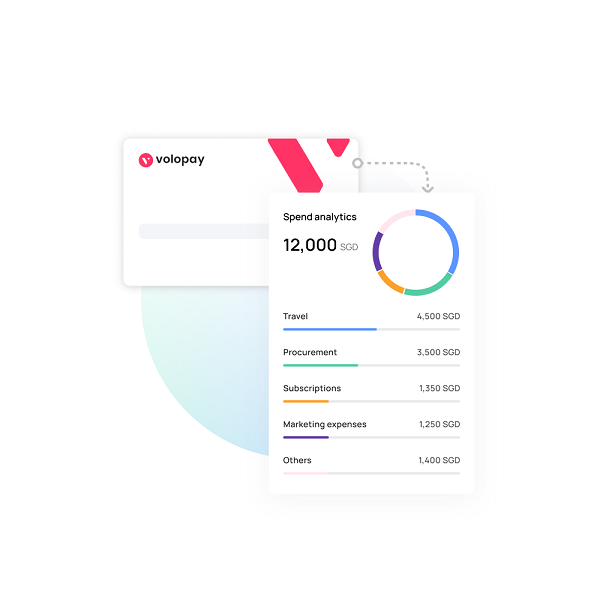Guide to improve corporate travel policy compliance
Corporate travel policy exists to ensure the complete safety and satisfaction of your traveling employees. At the same time, it also works to make sure travel expenses are kept within budget and in check. However, how are such policies going to be effective at all if your employees are unable to follow them in the first place?
Depending upon the context, there can be multiple causes behind why your employees might be finding it difficult to follow company travel policy. Knowing the how and why behind this lack of travel policy compliance is key to understanding the steps you need to take to address these shortcomings.
What is corporate travel policy?
The rules, guidelines, and procedural norms that a company establishes to chart out how an employee is to navigate any form of travel that is necessary for business purposes are together called corporate travel policy. These policies are usually put together by a company’s finance or travel manager.
An extensive and thorough corporate travel policy should cover domestic as well as international travel. It should ideally also have directions pertaining to flight class, travel period covered, and mileage reimbursements. Some other details that are useful when included in business travel policy are:

Preferred travel company and booking system
Booking costs covered (e.g. lodging, vehicles, meals, etc.)
Travel expense reimbursement system
Corporate vendors or partners of choice
Approvals required for limit or budget extension
Why do you need a corporate travel policy?
Having a set of rules or guidelines to govern a process ensures a much greater degree of control and visibility. Similarly, for corporate travel management as well, the presence of policies can make admin work so much easier. However, corporate travel policy is not only about rules and regulations. It also serves to facilitate a number of other benefits for your company:
1. It encourages booking flexibility and autonomy as long as guidelines are adhered to.
2. Reduces confusion and misconceptions regarding company regulations.
3. Helps mitigate emergencies for traveling employees and ensures their safety in unprecedented circumstances.
4. Helps set budgets, limits and, therefore, also control and manage travel expenses.
5. Streamlines travel arrangements and help cut down on time spent on such tasks by employees.
6. Clearly outlines reimbursement and travel approval workflows.
7. Encourages fair and transparent treatment of all employees.
5 reasons to improve corporate travel policy for better compliance
Lack of awareness & accessibility
Improper flow of information, or the lack thereof, has often been found to be a popular reason behind employees not adhering to corporate travel policy. It leads to employees being unaware of the existence of company travel guidelines or documents. Moreover, even if some of them are aware of the existence of travel policy they might still not know how or where to access it from.
Make sure you conduct regular and company-wide meetings, Q and A sessions, workshops, etc. on travel policy guidelines and updates. Keeping your employees informed is the first step towards ensuring complete travel policy compliance. Next, you must also ensure ease of access to the policy documents themselves; whether you distribute individual copies or keep a universally accessible online database, easy access is key.
Hard to understand the policy
Policies that are not understood will never be complied with. Corporate travel policy for employees is often written in a manner that is heavy on the use of jargon and technical language. While the authors of these documents (e.g. finance or travel managers) might not struggle with this, other, less technically prepared employees, often tend to find such language hard to understand.
You can counteract this by enforcing simplicity when the policy document is being written. Make sure the language used can be understood by all employees and at the same time is thorough enough to state all necessary information clearly.
Outdated T&E policies
Travel and expense policies must stand the test of time; if they don’t then they must be updated. The introduction of new modes of travel, consumerization of business travel, and services like Uber, Airbnb, etc. have transformed the way we navigate travel. Moreover, the expectations of today’s workforce regarding business travel have also evolved.
If your corporate travel policy does not accommodate or account for new developments in the travel world then they’re likely to be insufficient for your employees. Consequently, your employees are also likely to not comply with such outdated policies and regulations. Consider conducting an annual or bi-annual evaluation of your travel policy guidelines; revamp the sections that are outdated and add ones that are deemed necessary by current business travel trends.
Related page: How to reduce T&E expenses for your sales team?
Hard to navigate the software
Besides the policies themselves, the software that you use to manage and enforce travel policies can also succumb to being outdated or difficult to use. Nowadays we’ve got software that can manage nearly everything. These platforms are also constantly being updated and improved by developers to suit consumer demands and keep them in tune with the latest developments in tech.
In case you are using software that is not up-to-date or is clunky, difficult to navigate, and overall a hassle to use then it might be a contributing factor towards travel policy noncompliance. Your best bet is to onboard a software that has an intuitive interface, is easy to use, and is constantly updated.
Not following the procedures
Employees are often found not following the outlined procedures within the policies as well. For instance, a policy that clearly states that an agent must make the booking but an employee makes the booking on their own and requests reimbursement. Procedural discrepancies could also be related to factors like the cost of traveling dependents, overspending, incorrectly logged transactions, etc.
How to write corporate travel policy for better employee compliance?

Make sure employees understand the travel policy
Last, but not least, clarity and simplicity are especially important to creating a travel policy that is easier to comply with. If your employees are unable to navigate the policy document or understand what’s on it they will simply not be able to adhere to it. You must focus on drafting a policy document that is clear, concise, and thorough in the way it presents information.

Ensure employee satisfaction
While cost containment is a key factor to consider when drafting corporate travel policy it should not overshadow employee satisfaction. If your business travel guidelines are not conducive to employee satisfaction the chances that employees will not comply with them are higher. You must attempt to establish a policy document that carefully balances company objectives with the overall satisfaction of employees.

Clearly define business objectives
Each company has its own unique corporate travel policy. While the general elements remain the same, the specifics or nuances of the policy will differ from business to business. This difference, again, will depend on what objective the company wishes to accomplish via the policies. For example, your objective could be cost containment, travel flexibility, or travel policy compliance. Before you set out to write your policy document, clearly define what objectives you wish the policies to accomplish, who they are directed to, and how you wish to achieve these goals.

Analyze existing travel policy
Before setting out to draft a new travel policy make sure you first analyze your existing policies. Check what’s been missing, what’s gone wrong, and what hurdles it has been presenting to compliance. This can give you a good starting point for your new, upgraded policy document.
How Volopay can help you with corporate travel management?
Choosing the right tools is the first step to building a system that ensures success. The same applies to corporate travel management. The infrastructure, software, and approach you adopt when drafting and managing travel policies can go a long way in determining the long-term efficacy of these policies. Simplifying these decisions, creating an easy-to-use, one-stop, travel and expense management platform is an integral part of what we’re accomplishing here at Volopay.
Volopay offers an intuitive end-to-end corporate travel booking platform that has inbuilt payment, expense, and reconciliation solutions. With Volopay you can issue exclusive corporate travel cards to your employees. These cards can all be tracked and controlled remotely from Volopay’s comprehensive spend management platform. Moreover, each transaction made on these cards is recorded and verified in real-time giving you constant visibility over travel expenditures.








Trusted by finance teams at startups to enterprises.
Bring Volopay to your business
Get started free